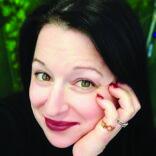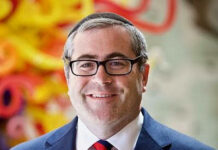
By Jessica Russak-Hoffman
There was talk of a potential attack on the nearby Empire State Building. My roommates and I covered our mouths and noses with towels to protect against the still-fetid air and walked east from our midtown Manhattan Stern College apartment to get out of the danger zone. Every telephone pole was plastered with hastily printed “MISSING” signs, each with a different smiling face and a phone number to call.
At the corner, right where the barricades met the Bellevue Hospital Center, two lines formed behind folding tables on the sidewalk.
“What are these lines?” I asked a state trooper.
“One to give the name of the missing person and check to see if they’re in the hospital. The other to provide DNA,” he said.
Indeed, there were people in the lines clutching Ziploc bags of hair brushes and toothbrushes. As the days passed, the line for the hospital names grew shorter, and the DNA line grew longer. The missing were presumed dead.
So when I traveled from Grand Central Terminal on Friday to spend Shabbos at the University of Pennsylvania I was mortified to hear someone at Hillel joke: “Some guy trying to leave his wife is for sure faking his death right now.”
I said nothing. I was still in shock from the attacks, but this tragedy was not mine, either. I was a witness, not a victim.
One month later I was asked to help organize Stern students to sit shmira at the New York City Medical Examiner’s temporary morgue outside Bellevue every Shabbos — keeping the Jewish custom of watching over the dead. Every Friday night I took the midnight shift and arrived at the very spot where the two lines had formed. Fate brought me there. A mitzvah brought me there again and again.
Every single time it felt like I was walking onto holy ground.
We were a constant flow of young Jews; the same few volumes of Psalms passed from hand to hand for months on end.
What started off as a catastrophe that I happened to witness became something different. During my once-a-week midnight Shabbos shift, my job was to offer comfort to the souls that lingered there in that makeshift outdoor morgue. I lived inside that space for nearly nine months, and when it ended, it was my turn to recover.
Twenty years later, I can honestly say that I haven’t. It is raw. I still think about that Penn student who joked about the missing, and perhaps it has made me stronger in teaching my own children about empathy and the right words to say.
Instead I seek closure. I visit the memorial and see the waterfalls flowing into the memorial pools.
In the depths, in their company, inverted into the ground below memorial waterfalls, I go back to one of the Psalms. To the one I’d memorized and could recite over and over when I was too tired at 4 in the morning to read from the book. Tehillim 130, which begins: “A song of ascents. Out of the depths I call You, O Lord.”
Every year around this time I am brought into the depths.
Out of the depths I continue to call.
Jessica Russak-Hoffman is a Seattle-based author.






